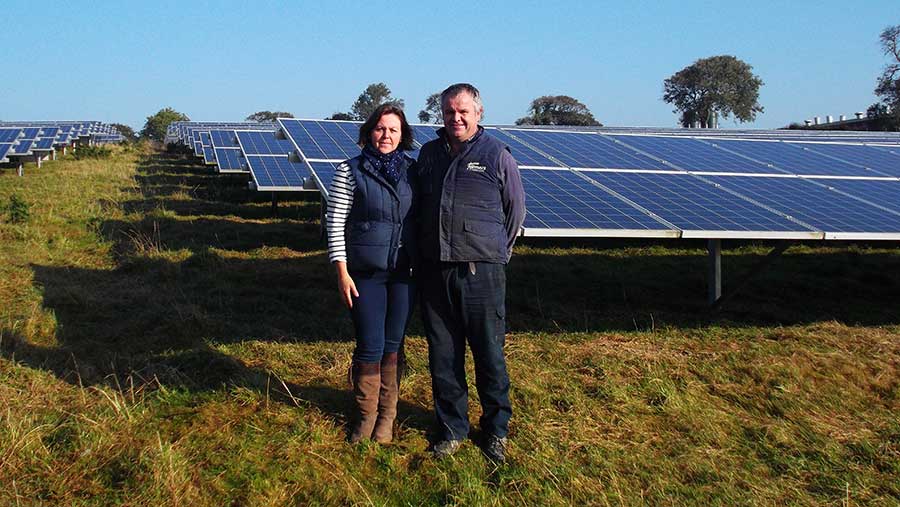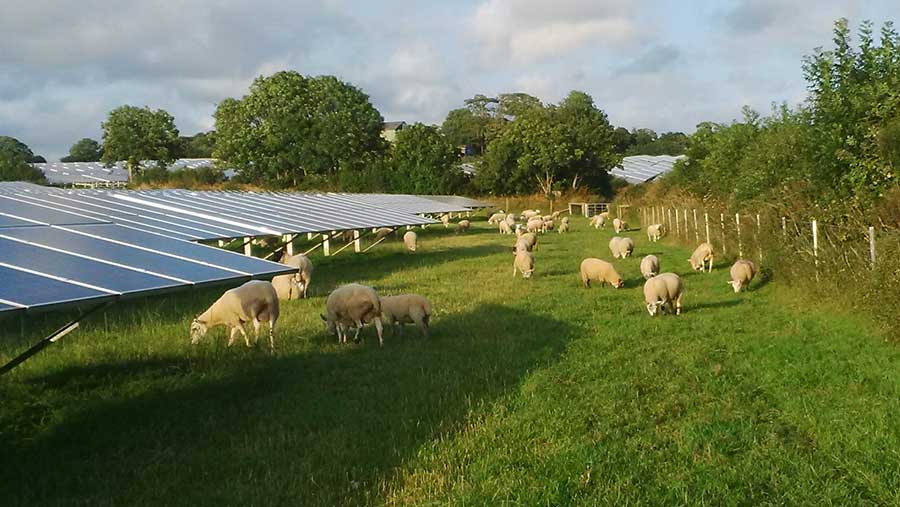Advertiser content
Change and uncertainty are challenges, but offer opportunity
Farmers and growers are facing a period of immense change and uncertainty.
Market pressures, a soaring energy and input costs crisis, and global instability as the war in Ukraine continues to bite are providing a perfect storm.
At the same time, the world must tackle the issues of climate change if we are to continue feeding a growing global population.
With the UK the first country in the world to set a net zero target, British farming has also committed to work towards net zero agriculture by 2040, in a pledge made by the NFU.
Working to reduce farming’s carbon and greenhouse gas footprint can help deliver on multiple fronts; increasing productivity, building resilience into the agri-food supply chain, and ensuring our sector continues to provide climate-friendly food, both now and long into the future.
As the sector navigates these economic and environmental challenges, farmers and growers are demonstrating how the policy ambition is providing practical opportunities to improve profitability on farm.
The vision: British farming’s net zero ambition
The British farming industry has set an ambition be reach net zero greenhouse gas emissions by 2040.
This ambition is about reducing greenhouse gas emissions as far as possible and then balancing remaining emissions through carbon removal, either through nature-based or engineered renewable energy production.
To facilitate the industry to transition to net zero, the NFU is working to influence government to establish a practical and progressive policy, regulatory and trading environment for British agriculture.
This includes working to strengthen farming’s position in the supply chain, identify research gaps and to give NFU members the tools they need to take climate action.
The 2040 net zero ambition is industry-wide – it does not mean that every farm is expected to become carbon neutral. But everyone can strive to produce climate-friendly British food, energy and fibre and contribute to net zero agriculture in Britain.
There are three key pillars of the NFU’s net zero plan:
- Productivity and resource use efficiency
- Renewable energy production
- Carbon sequestration and storage
Utilising these three themes, farmers and growers all over the country are demonstrating how climate-smart farming can be a win-win; from improving efficiency, reducing inputs and lowering costs, and boosting resilience, all while improving the sustainability of food production.
With fertiliser, feed and fuel prices at record highs this has never been more important – for farm businesses, the environment, and the climate.
Resource use efficiency
Beef farmer Mark Jelley: “If something is costing you money, it is probably also costing you carbon.”
Mark Jelley runs a beef and arable farm in Northampton. It is an integrated system in which straw and cattle manure are exchanged between both parts of his business.
He believes that efficiency and costs are closely linked, and that becoming more efficient can only benefit his bottom line.
“For me, resource use efficiency is everything and it benefits both sides of the business – sustainability and profitability. Because if something is costing you money, it is probably also costing you carbon.”
On his farm, crops which do not reach the quality specifications for human consumption are fed to the cattle, and the straw produced from the crops is used as bedding.
Livestock manure collected while the cattle are housed is also recycled on to the cropped area.
“Such an integrated system recycles nutrients, reduces waste and spreads cost across our different enterprises, ultimately improving efficiency.”
This not only saves him money but has aided sustainable food production, and he’s not stopping there.
“The spreading of manure on to the arable land has improved organic matter, reduced the need for external inputs, and created a better and more resilient soil structure for future productive cropping.
“I’m now turning my focus to further boosting health and welfare to minimise mortality, and optimising growth rates to ensure efficient lifecycles.”
The benefits of renewables
Focusing on energy, Welsh poultry and livestock farmers Clare and Stephen Morgan have a lot to say about the financial benefits of diversifying into renewables.
In 2014-2015 they built a 46MW solar farm on a 30 year lease which their sheep graze around, and they also own 120kW of ground-mounted solar PV.
As well as this, they have a 350kW biomass boiler which heats 16 converted barns and the farmhouse using woodchip.
“By diversifying from the original business of potatoes, arable, beef and sheep we have spread our risk, making our income stream more stable and protecting it from agricultural market volatility.”
They highlighted that there are barriers when it comes to planning permission, which they experienced for the solar PV, hen sheds and conversions, but said it hasn’t put them off.
In fact, they have plans for even more renewable energy projects, alongside making productivity gains.
“Next, we’d like to double our farm-owned solar, install batteries when they’re economically viable and source hens with better production and longevity i.e. taking hens to 100 weeks of age. And the challenge for the future – an economic replacement for soya.”
Carbon capture
Hampshire arable farmer Mark Glover’ family has been farming in the area for more than 50 years, and he has three sons who are looking to carry on the business.
For him, planting trees in the right place poses benefits for the climate, the environment, the longevity of his business, and mental health.
“I am really interested in planting trees on our farm which helps to offset carbon emissions, reduce nitrates entering the water courses, and improve our natural landscape.
“We planted lots of trees 20 and 10 years ago and going forward we hope to plant more. We planted these trees in field corners to square up boundary spaces that weren’t so good for arable, therefore making the most of our space.
“There is another very important benefit that many take for granted and that is for our mental health. It is a wonderful feeling to be standing in a woodland that you created and know that it will be there in generations to come.
“I know that myself and my family will be raising a glass or two on Christmas morning standing in our woodland.”
He has some advice for anyone who strives to make their contribution to net zero agriculture:
“My advice would be to understand the financial side and make decisions based on that, but also to understand that you will be enhancing the farm overall.
“I know that by implementing net zero initiatives, I will not only be benefitting the environment, but I will be leaving my business in a better place for my sons.”
Provided by
The NFU represents more than 46,000 agricultural businesses, championing British farming and campaigning for a stable and sustainable future for our members.
We pride ourselves on delivering at a national and local level and understand the challenges and opportunities farmers face in running an agricultural business. Our regional offices, expert local advisers and over 380 NFU representatives have built local connections to ensure we make a difference.
Together with our members, we make sure farming’s story is told; securing national media coverage, working with schools or securing one million signatures to protect British food standards.
We take our job of keeping our members informed seriously, producing a range of magazines, newsletters, and easy-to-digest articles to ensure they have the right information.
The NFU is committed to representing its members and together we will ensure farming’s future is brimming with opportunity and that food production gets the recognition it rightly deserves.
Find out more at nfuonline.com


